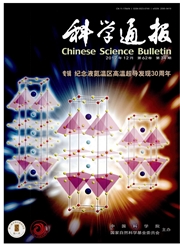

 中文摘要:
中文摘要:
基于纳米技术的干细胞研究是指运用纳米技术开展干细胞的相关研究,包括基于纳米技术的干细胞微环境培养、干细胞转染、干细胞分离、干细胞组织工程以及干细胞检测、跟踪和成像等,是结合干细胞和纳米技术这两个前沿科技领域迅速发展并逐渐形成的一个新兴研究方向.本文评述了最近几年纳米技术应用于干细胞研究的进展,主要体现在基于纳米颗粒的干细胞分离纯化、纳米颗粒用于干细胞的标记与成像,纳米颗粒作为基因或其他药物分子的载体转染干细胞以及三维纳米结构控制干细胞增殖分化等方面.同时,就纳米材料与干细胞的生物效应研究现状作了阐述,并进一步展望了基于纳米技术干细胞研究的发展前景与关键问题.
 英文摘要:
英文摘要:
The stem cell nanotechnology refers to the applications of nanotechnology in stem cell research, including the applications of nanotechnology for stem cell incubation in microenvironment, stem cell transfection, stem cell isolation, stem cell tissue engineering, stem cell detecting, tracking and imaging. By combining the two significant research fields of nanotechnology and stem cells, the stem cell nanotechnology has been well developed and become a new research field In this paper, major advancement in stem cell research based on nanotechnology in these years has been reviewed, mainly including magnetic nanoparticles for stem cell isolation and sorting, fluorescent nanoparticles labeling method for stem cell labeling and stem cell in vivo tracking, nanomaterials based carriers for the intracellular delivery of genes, protein and drugs, engineering of nanometer-scale scaffold material for proliferation and differentiation of stem cells. The bioeffects of nanomaterials with stem cells have been described. The prospects and key challenges of stem cell research based on nanotechnologies have been discussed.
 同期刊论文项目
同期刊论文项目
 同项目期刊论文
同项目期刊论文
 Atomic force microscopy investigation of the characteristic effects of silver ions on Escherichia co
Atomic force microscopy investigation of the characteristic effects of silver ions on Escherichia co Noninvasive monitoring of intracellular pH change induced by drug stimulation using silica nanoparti
Noninvasive monitoring of intracellular pH change induced by drug stimulation using silica nanoparti Sensitive fluorescence detection of nucleic acids based on isothermal circular strand-displacement p
Sensitive fluorescence detection of nucleic acids based on isothermal circular strand-displacement p Activatable aptamer probe for contrast-enhanced in vivo cancer imaging based on cell membrane
protei
Activatable aptamer probe for contrast-enhanced in vivo cancer imaging based on cell membrane
protei Pyrene-Excimer Probes Based on the Hybridization Chain Reaction
for the Detection of Nucleic Acids i
Pyrene-Excimer Probes Based on the Hybridization Chain Reaction
for the Detection of Nucleic Acids i Electrochemical Detection of Thrombin Based on Aptamer and Ferrocenylhexanethiol Loaded Silica
Nanoc
Electrochemical Detection of Thrombin Based on Aptamer and Ferrocenylhexanethiol Loaded Silica
Nanoc On-chip oligonucleotide ligation assay using one-dimensional microfluidic beads array for the detect
On-chip oligonucleotide ligation assay using one-dimensional microfluidic beads array for the detect Telomerase catalyzed fluorescent probes for sensitive protein profiling based on one-dimensional mic
Telomerase catalyzed fluorescent probes for sensitive protein profiling based on one-dimensional mic Rhodamine B isothiocyanate doped silica-coated fluorescent nanoparticles (RBITC-DSFNPs)–based biopro
Rhodamine B isothiocyanate doped silica-coated fluorescent nanoparticles (RBITC-DSFNPs)–based biopro Preparation of luminescent Cy5 doped core-shell SFNPs and its application as a near-infrared fluores
Preparation of luminescent Cy5 doped core-shell SFNPs and its application as a near-infrared fluores Identification of liver cancer cells in a mixed cell system using galactose-conjugated fluorescent n
Identification of liver cancer cells in a mixed cell system using galactose-conjugated fluorescent n Electrochemical detection of nicotinamide adenine dinucleotide based on molecular beacon-like DNA an
Electrochemical detection of nicotinamide adenine dinucleotide based on molecular beacon-like DNA an Electrochemical biosensors for detection of point mutation based on surface ligation reaction and ol
Electrochemical biosensors for detection of point mutation based on surface ligation reaction and ol Barbated Skullcup herb extract-mediated biosynthesis of gold nano-particles andits primary applicati
Barbated Skullcup herb extract-mediated biosynthesis of gold nano-particles andits primary applicati Fluorescent Nanoparticle-Based Indirect Immunofluorescence Microscopy for Detection of Mycobacterium
Fluorescent Nanoparticle-Based Indirect Immunofluorescence Microscopy for Detection of Mycobacterium A novel molecular beacon based bioassay for highly sensitive and selective detection of NAD+ and the
A novel molecular beacon based bioassay for highly sensitive and selective detection of NAD+ and the Chemical etching with tetrafluoroborate: a facile method for resizing of CdTe nanocrystals under mil
Chemical etching with tetrafluoroborate: a facile method for resizing of CdTe nanocrystals under mil Monitoring p21 mRNA expression in living cell based on molecular beacon fluorescence increasing rate
Monitoring p21 mRNA expression in living cell based on molecular beacon fluorescence increasing rate Chemical-modification-enhanced dielectrophoretic assembly of controllable and reversible silica subm
Chemical-modification-enhanced dielectrophoretic assembly of controllable and reversible silica subm Biocompatible silica nanoparticles-insulin conjugates for mesenchymal stem cell adipogenic different
Biocompatible silica nanoparticles-insulin conjugates for mesenchymal stem cell adipogenic different A novel methotrexate delivery system based on chitosan-methotrexate covalently conjugated nanopartic
A novel methotrexate delivery system based on chitosan-methotrexate covalently conjugated nanopartic Methylene blue-encapsulated phosphonate-terminated silica nanoparticles for simultaneous in vivo ima
Methylene blue-encapsulated phosphonate-terminated silica nanoparticles for simultaneous in vivo ima Barbated Skullcup herb extract-mediated biosynthesis of gold nanoparticles and its primary applicati
Barbated Skullcup herb extract-mediated biosynthesis of gold nanoparticles and its primary applicati 期刊信息
期刊信息
